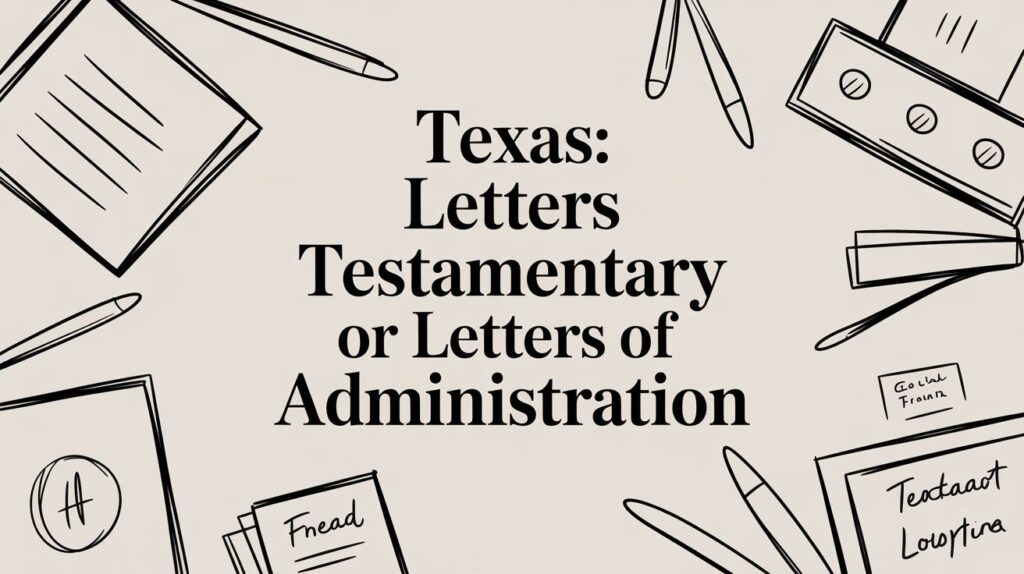When planning your estate, the word 'trust' often comes up, but what does it really mean for your family and their future? A trust is a powerful legal tool, essentially a private agreement you create to hold and manage your assets for the benefit of your loved ones, who are known as beneficiaries. Unlike a will, which becomes a public record and must go through the Texas Probate Process, many types of trusts offer privacy, control, and a direct way to bypass the often lengthy and costly court system.
For Texas families, understanding the different types of trusts available is the first step toward creating a legacy that is protected, private, and passed on according to your exact wishes. A primary motivation for many is the strategic benefit of Protecting Assets from Nursing Home Costs, ensuring that a lifetime of hard work is preserved for heirs rather than depleted by long-term care expenses. This forward-thinking approach provides immense peace of mind.
This comprehensive guide is designed to demystify these legal instruments. We will walk you through twelve of the most common and effective trusts available in Texas, from the flexible Revocable Living Trust to advanced tools like Special Needs Trusts and Charitable Remainder Trusts. We'll explain in plain English how each one works, who it's for, and the specific problems it solves. We know you're not just managing assets; you're securing your family's financial future. Let's explore these options together with the clarity and empathy you deserve during this important process.
1. Revocable Living Trust
A Revocable Living Trust is a flexible estate planning tool created during your lifetime (the “settlor” or “grantor”) to hold your assets. You typically act as the initial trustee, maintaining full control over the assets. The core purpose is to allow your designated successor trustee to manage or distribute your assets seamlessly if you become incapacitated or pass away, all without court intervention. This makes it a cornerstone among the various types of trusts for avoiding the often lengthy and public probate process.

Unlike an irrevocable trust, you can change, amend, or completely dissolve a revocable trust at any time. This adaptability is crucial for individuals whose financial situations or family dynamics may evolve. For example, a business owner in Texas might place their company shares into a revocable trust, ensuring a smooth transition of management to a chosen successor without disrupting operations upon their death. This action is governed by the principles in Title 2 of the Texas Estates Code, which outlines the fundamental aspects of wills and estate administration.
Key Considerations and Best Practices
- Proper Funding is Essential: A trust only controls assets titled in its name. You must retitle real estate, bank accounts, and investments into the trust.
- Use a Pour-Over Will: This special will acts as a safety net, directing any assets not properly funded into your trust upon your death.
- Regular Reviews: Life changes like marriage, divorce, or the birth of a child warrant a review of your trust documents to ensure they still reflect your wishes.
This trust is ideal for Texas residents wanting to maintain privacy, avoid probate, and plan for potential incapacity. If you want to learn more about setting up a trust in Texas, an attorney can help ensure it's properly created and funded.
2. Irrevocable Life Insurance Trust (ILIT)
An Irrevocable Life Insurance Trust (ILIT) is a sophisticated estate planning tool designed specifically to own a life insurance policy. When you create and fund an ILIT, you transfer ownership of your life insurance policy to the trust, which effectively removes the policy's death benefit from your taxable estate. This is a critical strategy for high-net-worth individuals aiming to minimize federal estate taxes, ensuring that beneficiaries receive the full, untaxed proceeds. Unlike revocable trusts, an ILIT cannot be altered or dissolved once established, a key feature for its tax-saving power.
For instance, a successful Texas business owner with a multi-million dollar estate could use an ILIT to hold a large life insurance policy. Upon their death, the insurance proceeds are paid directly to the trust, providing immediate liquidity for their family to pay estate taxes, debts, or business expenses without having to sell off other valuable assets. An Irrevocable Life Insurance Trust is a powerful tool for family protection; further understanding specialized coverage like life insurance for parents can enhance your estate plan.
Key Considerations and Best Practices
- Trustee's Role is Crucial: The trustee, not the insured, must apply for and own the insurance policy from the start to avoid potential tax complications.
- Fund the Trust Annually: You can make annual gifts to the trust, typically within the annual gift tax exclusion amount, which the trustee then uses to pay the policy premiums.
- Issue "Crummey" Notices: To qualify for the annual gift tax exclusion, the trustee must send beneficiaries a "Crummey letter" each time a gift is made to the trust, informing them of their right to withdraw the funds for a limited time.
- Understand Irrevocability: The permanent nature of an ILIT is its strength for tax purposes but also its biggest commitment. The distinctions between trust types are significant, so it's wise to learn more about irrevocable vs. revocable trusts before making a decision.
3. Charitable Remainder Trust (CRT)
A Charitable Remainder Trust (CRT) is a sophisticated estate planning tool that allows you to donate assets to a charity while receiving a steady income stream from those assets for a set period. This split-interest trust effectively lets you support a cause you care about while also benefiting yourself or other beneficiaries. As one of the more strategic types of trusts, it merges philanthropic goals with powerful tax advantages, making it a popular choice for those with charitable intent.
This trust is irrevocable, meaning once created, it cannot be easily changed. For example, a Texas rancher could place a highly appreciated parcel of land into a CRT. The trust sells the land tax-free, invests the proceeds, and pays the rancher an income for life. Upon the rancher's passing, the remaining assets go to their designated charity, such as a local university, creating a lasting legacy. This structure avoids capital gains tax on the sale and provides the grantor an immediate charitable tax deduction.
Key Considerations and Best Practices
- Choose the Right Structure: Decide between a Charitable Remainder Annuity Trust (CRAT) for fixed annual payments or a Charitable Remainder Unitrust (CRUT) for payments that fluctuate with the trust's value.
- Time Your Contribution: To maximize tax benefits, fund the trust with highly appreciated assets like stocks or real estate before a sale. This bypasses capital gains tax.
- Work with Professionals: Collaborate with an estate planning attorney and a CPA to accurately calculate your income tax deduction and ensure the trust complies with all IRS regulations.
- Select a Qualified Charity: Clearly name a qualified 501(c)(3) organization as the remainder beneficiary to ensure the trust's validity and your tax benefits.
A CRT is ideal for philanthropically-minded Texans with appreciated assets who want to generate income, receive significant tax deductions, and leave a meaningful charitable legacy. An attorney can help structure the CRT to align perfectly with your financial and charitable objectives.
4. Qualified Personal Residence Trust (QPRT)
A Qualified Personal Residence Trust (QPRT) is an advanced, irrevocable trust designed to transfer a primary or secondary residence to beneficiaries at a significantly reduced gift tax cost. The grantor transfers the home into the trust but retains the right to live in it for a specified number of years, known as the “retained income period.” Because the beneficiaries do not receive the property immediately, the value of the gift for tax purposes is discounted. This makes a QPRT a powerful tool among the different types of trusts for high-net-worth individuals aiming to reduce their taxable estate.
If the grantor outlives the trust's term, the property officially passes to the beneficiaries, removing its full future appreciated value from the grantor's estate. For example, a Texas family could place their valuable Galveston vacation home into a QPRT. By surviving the term, they successfully transfer a significant asset to their children while minimizing federal estate and gift taxes. After the term ends, the grantor can continue living in the home by paying fair market rent to the new owners (their beneficiaries).
Key Considerations and Best Practices
- Surviving the Term is Crucial: If the grantor does not survive the retained income period, the home’s value is brought back into their estate for tax purposes, negating the primary benefit.
- Select an Appropriate Term: The term length should be carefully chosen based on the grantor's age and health, balancing tax savings with the risk of not outliving the term.
- Plan for Post-Term Occupancy: If you wish to remain in the home after the term expires, a formal lease agreement must be established with the beneficiaries to pay fair market rent.
This trust is best suited for individuals with significant real estate assets and estates large enough to face federal estate taxes. To explore how trusts can manage real estate in Texas, consulting an estate planning attorney is essential to navigate the complexities and ensure compliance.
5. Spendthrift Trust
A Spendthrift Trust is a specialized trust designed to protect a beneficiary’s inheritance from their own financial imprudence and from the reach of their creditors. The key feature is a "spendthrift provision," which restricts the beneficiary from selling, assigning, or giving away their interest in the trust. The trustee, not the beneficiary, has discretion over when and how funds are distributed, ensuring the assets are preserved for the beneficiary's long-term care and support. This makes it one of the most vital types of trusts for grantors concerned about a beneficiary's ability to manage money responsibly.

This structure is particularly useful in Texas for a variety of sensitive situations. For example, a parent might establish a spendthrift trust for an adult child with a history of substance abuse or significant debt, ensuring their inheritance provides for housing and medical needs without being squandered. Similarly, it can protect assets for a beneficiary who is financially inexperienced or simply vulnerable to poor decision-making, safeguarding the family's legacy for generations.
Key Considerations and Best Practices
- Select a Prudent Trustee: Choose a trustee with strong financial judgment and the ability to act impartially, as they will have significant control over distributions.
- Define Distribution Standards: Clearly outline the circumstances under which the trustee can distribute funds, such as for health, education, maintenance, and support (HEMS). This guides the trustee and manages beneficiary expectations.
- Communicate Your Intent: While not legally required, explaining the purpose of the trust to the beneficiary can help reduce potential conflict and resentment toward the trustee.
A spendthrift trust is ideal for providing for a loved one while protecting them from themselves and external threats. If you need to secure a beneficiary's future, an attorney can help you structure a trust that provides a strong financial safety net.
6. Grantor Retained Annuity Trust (GRAT)
A Grantor Retained Annuity Trust (GRAT) is a sophisticated, irrevocable estate planning tool designed to transfer wealth to beneficiaries with minimal or no gift tax. The grantor transfers appreciating assets into the trust and, in return, receives a fixed annual payment (an annuity) for a specified number of years. At the end of the term, any asset growth above the IRS-set interest rate (the Section 7520 rate) passes to the beneficiaries entirely gift-tax-free. This makes the GRAT one of the most powerful types of trusts for high-growth assets.
This trust essentially allows you to "freeze" the value of an asset for gift tax purposes. For example, a Texas entrepreneur could place a portion of their rapidly growing company stock into a GRAT. If the stock's value skyrockets beyond the IRS interest rate, that substantial appreciation is transferred to their children without incurring gift or estate taxes, preserving family wealth across generations. It is a strategic tool favored by high-net-worth individuals to pass on significant assets efficiently.
Key Considerations and Best Practices
- Select High-Growth Assets: GRATs are most effective when funded with assets expected to appreciate significantly, such as pre-IPO stock or appreciating real estate.
- Mortality Risk: The grantor must outlive the trust term for the strategy to succeed. If the grantor passes away during the term, the remaining trust assets are typically included in their taxable estate. Using shorter terms (e.g., two to five years) can mitigate this risk.
- Monitor IRS Rates: The success of a GRAT is tied to the Section 7520 rate set by the IRS. Establishing the trust when these rates are low increases the likelihood that asset growth will outperform the benchmark, maximizing the tax-free gift to beneficiaries.
This trust is ideal for individuals with significant assets they expect to grow in value, such as business owners and investors. To explore if a GRAT fits your estate strategy, discussing the specifics with a knowledgeable attorney is crucial.
7. Qualified Domestic Trust (QDOT)
A Qualified Domestic Trust (QDOT) is a specialized estate planning tool designed for situations where the surviving spouse is not a U.S. citizen. Normally, assets passed to a surviving spouse who is a U.S. citizen qualify for an unlimited marital deduction, deferring federal estate taxes until the second spouse’s death. However, this deduction is disallowed for non-citizen spouses. A QDOT allows the estate to claim the marital deduction, preserving wealth by deferring the estate tax.
The trust holds the assets for the benefit of the non-citizen spouse, but at least one trustee must be a U.S. citizen or a U.S. corporation. This structure ensures that the U.S. government can collect estate taxes when the surviving spouse passes away or if principal is distributed. For instance, a Dallas-based executive married to a foreign national could use a QDOT to ensure their spouse is financially supported without triggering an immediate, and substantial, estate tax bill upon their death. This makes the QDOT an essential tool among the various types of trusts for international families.
Key Considerations and Best Practices
- Trustee Requirements: The trust must have at least one U.S. trustee who has the power to withhold estate tax from any principal distributions. For larger estates, a U.S. bank or trust company may be required as a trustee.
- Timely Election: The QDOT election must be officially made on the deceased's federal estate tax return (Form 706), which is typically due nine months after death.
- Taxable Events: Any distribution of principal from the trust to the non-citizen spouse is a taxable event. The U.S. trustee is responsible for paying the deferred estate tax from that distribution.
This trust is critical for Texas residents in cross-border marriages who want to provide for their non-citizen spouse while deferring federal estate taxes. If you need to understand how wills and trusts can protect your international family, consulting an attorney is vital.
8. Special Needs Trust (SNT)
A Special Needs Trust (SNT) is a specialized legal arrangement designed to hold assets for a person with a physical or mental disability without jeopardizing their eligibility for vital means-tested government benefits like Medicaid and Supplemental Security Income (SSI). The trustee manages the funds and can make discretionary payments for supplemental needs not covered by public assistance, such as therapy, education, or recreation. This makes it one of the most critical types of trusts for families planning for the long-term care of a loved one with disabilities. It is an essential tool for families who may also be exploring Guardianship.
For example, parents of a child with cerebral palsy in Texas can establish a third-party SNT funded with life insurance proceeds. Upon their passing, the trustee can use these funds to pay for a wheelchair-accessible van, in-home care, or specialized equipment for their child, enhancing their quality of life while ensuring they continue to receive essential medical coverage through Medicaid. The trust assets are not considered "countable assets" for benefit eligibility purposes.
Key Considerations and Best Practices
- Comply with Strict Rules: SNTs are governed by complex federal and state laws. Working with a special needs planning attorney is crucial to ensure the trust is drafted correctly to preserve benefits.
- Provide Trustee Guidance: A detailed "Letter of Intent" should be created to give the trustee personal insights into the beneficiary's needs, preferences, and long-term care goals.
- Choose the Right Trustee: Select a trustee, whether a family member or a professional corporate trustee, who understands the intricate rules of SNT administration and their fiduciary duties.
This trust is indispensable for anyone wanting to provide for a disabled loved one without unintentionally disqualifying them from necessary government aid. An attorney experienced in Texas special needs planning can help create a compliant and effective SNT.
9. Dynasty Trust
A Dynasty Trust is a powerful, long-term estate planning tool designed to pass wealth across multiple generations while minimizing exposure to transfer taxes. Unlike trusts that terminate after a certain period, a dynasty trust can last for a very long time, sometimes indefinitely, depending on state law. This allows a family to preserve and grow its assets, such as a family business or real estate portfolio, for the benefit of children, grandchildren, and future descendants, shielding the wealth from estate taxes, creditors, and marital disputes at each generational level.
This type of trust leverages the Generation-Skipping Transfer (GST) tax exemption, a significant federal tax advantage. By allocating this exemption to assets placed in the trust, a grantor ensures that the wealth can grow and be distributed to future generations without incurring the hefty GST tax. For example, an ultra-high-net-worth family in Texas might place a portfolio of commercial properties into a dynasty trust, ensuring the rental income and property value benefits future generations without being diminished by transfer taxes each time it passes down.
Key Considerations and Best Practices
- Utilize the GST Exemption: Fully funding the trust up to the current GST tax exemption ($13.61 million per person in 2024) is crucial to maximizing its tax-saving benefits.
- Choose the Right Jurisdiction: While Texas law permits long-term trusts, some states like South Dakota or Delaware have more favorable laws, such as eliminating the rule against perpetuities entirely.
- Appoint a Corporate Trustee: Given the trust's long-term nature, appointing a professional corporate trustee with expertise in multi-generational wealth management ensures continuity and expert administration.
- Build in Flexibility: Draft the trust with provisions that allow it to adapt to future changes in tax law, family circumstances, and economic conditions.
A Dynasty Trust is one of the more complex types of trusts, best suited for individuals with significant wealth who want to create a lasting legacy. If you want to explore how a long-term trust can preserve your family’s assets, a consultation can determine if it aligns with your goals.
10. Charitable Lead Trust (CLT)
A Charitable Lead Trust (CLT) is a sophisticated estate planning vehicle for philanthropically-minded individuals who also want to transfer wealth to family members. With this type of trust, you first donate assets to the trust, which then makes payments to a chosen charity for a specified number of years. After that period ends, the remaining assets in the trust are distributed to your non-charitable beneficiaries, such as your children or grandchildren, often with significant gift or estate tax savings.
This structure allows you to fulfill charitable goals while passing appreciating assets to the next generation in a tax-efficient manner. For example, a Texas business owner could place appreciating company stock into a CLT. The charity receives a steady income stream for a decade, and at the end of the term, the stock, which has hopefully grown in value, passes to the owner's children with a reduced transfer tax impact. This strategy makes the CLT a powerful tool among the different types of trusts for blending family legacy with community support.
Key Considerations and Best Practices
- Select Charities Carefully: Choose charitable organizations that align with your family's long-term values, as the commitment can span many years.
- Ideal for Appreciating Assets: A CLT is most effective when funded with assets expected to grow significantly, as this maximizes the wealth passed to heirs after the charitable term.
- Accurate Tax Calculations: Work closely with a financial advisor and an estate planning attorney to accurately calculate the initial charitable deduction and project the tax implications.
- Coordinate with Overall Plan: Ensure your CLT is fully integrated with your broader estate plan, including your will and any other trusts, to create a cohesive wealth transfer strategy.
This trust is best suited for high-net-worth individuals in Texas looking to reduce their estate and gift tax burden while making a substantial charitable impact. If you want to explore advanced strategies like a CLT, an attorney can help you understand the structure and ensure it aligns with your financial and philanthropic objectives.
11. Qualified Terminable Interest Property Trust (QTIP)
A Qualified Terminable Interest Property (QTIP) Trust is a specialized estate planning tool designed for complex family structures, particularly blended families. It allows you to provide for your surviving spouse for the remainder of their life while ensuring that the remaining trust assets ultimately pass to other beneficiaries, such as children from a previous marriage. The surviving spouse receives all income generated by the trust, but the grantor, not the spouse, dictates the final inheritors. This makes it a crucial instrument among the various types of trusts for balancing spousal support with legacy preservation.
This irrevocable trust provides a powerful solution for grantors who want to claim the unlimited marital deduction on their estate tax return, deferring potential estate taxes until the surviving spouse’s death. For example, a Texas business owner in a second marriage could use a QTIP trust to ensure their new spouse is financially secure with income from the business, while guaranteeing that the company itself is preserved and eventually passed down to the children from their first marriage.
Key Considerations and Best Practices
- Trustee Selection is Critical: Choose a neutral, professional trustee who understands the delicate dynamics of a blended family and can manage assets impartially to avoid conflicts between the surviving spouse and the final beneficiaries.
- Define "Income" Clearly: The trust document must explicitly detail what constitutes income for distribution to the spouse versus what remains as principal for the other heirs. This prevents ambiguity and potential litigation.
- Proper Tax Election: The executor of your estate must make the formal QTIP election on the federal estate tax return (Form 706) to qualify for the marital deduction. This is an irreversible decision.
A QTIP trust is ideal for high-net-worth individuals in Texas, especially those in second marriages, who wish to provide for their spouse without disinheriting children from a prior relationship. If you need to plan for complex family asset distribution, an attorney can structure a QTIP trust that protects all parties involved.
12. Grantor Retained Income Trust (GRIT)
A Grantor Retained Income Trust (GRIT) is an advanced, irrevocable trust where you, the grantor, transfer assets into the trust but keep the right to receive income from those assets for a specific number of years. Once this term ends, the remaining assets pass to your named beneficiaries, often children or grandchildren, free of additional estate tax. The initial transfer is considered a taxable gift, but its value is significantly discounted because you retain the income interest, offering a powerful way to reduce potential estate tax liability on appreciating assets.

This strategy is particularly effective for high-net-worth individuals in Texas looking to transfer assets like a valuable investment portfolio or income-producing real estate. For example, you could place a rental property portfolio into a GRIT for a 10-year term. You would continue to receive the rental income for those 10 years, but at the end of the term, the properties themselves would transfer to your children, having been removed from your taxable estate. This makes the GRIT a specialized tool among the different types of trusts for strategic wealth transfer.
Key Considerations and Best Practices
- Survive the Term: The grantor must outlive the trust's term for the strategy to work. If the grantor passes away before the term expires, the trust assets revert to their estate, negating the tax benefits.
- Accurate Valuation: The value of the taxable gift must be precisely calculated using the IRS Section 7520 interest rates at the time of the trust’s creation.
- Asset Selection: Use assets expected to generate sufficient income and appreciate significantly over the trust term to maximize the tax-saving benefits.
GRITs are complex instruments best suited for individuals with significant assets who can afford to part with the principal for a set period. If you need to create sophisticated Wills & Trusts to achieve specific tax objectives, consulting with an experienced attorney is crucial to ensure compliance and effectiveness.
Comparison of 12 Trust Types
| Trust | 🔄 Implementation complexity | ⚡ Resource needs | 📊 Expected outcomes / ⭐ | Ideal use cases | 💡 Key advantages / Tips |
|---|---|---|---|---|---|
| Revocable Living Trust | Moderate — drafting + funding; revocable | Medium — attorney fees, retitling accounts, periodic reviews | Avoids probate, privacy, incapacity planning; ⭐⭐⭐ | Owners wanting probate avoidance, multi-state property holders | Flexible and controllable; fund immediately and review every 3–5 years |
| Irrevocable Life Insurance Trust (ILIT) | High — irrevocable structure, Crummey mechanics | High — insurance setup, trustee, annual notices & admin | Removes life insurance from estate; estate-tax mitigation; ⭐⭐⭐⭐ | High‑net‑worth individuals needing liquidity for estate taxes | Fund before policy issuance; provide annual Crummey notices and clear trustee guidance |
| Charitable Remainder Trust (CRT) | High — split‑interest rules, tax calculations | High — CPA, trustee, ongoing reporting | Income stream + charitable remainder deduction; avoids immediate capital gains; ⭐⭐⭐ | Donors with appreciated assets seeking income + philanthropy | Choose CRUT vs CRAT by income needs; coordinate with CPA for deduction timing |
| Qualified Personal Residence Trust (QPRT) | High — valuation, term selection, appraisal | Medium‑High — appraisals, legal fees, post‑term planning | Gift tax savings by discounting residence value; removes future appreciation; ⭐⭐⭐ | Owners of primary/vacation homes aiming to reduce transfer taxes | Pick term by life expectancy; obtain professional appraisal and plan post‑term occupancy |
| Spendthrift Trust | Moderate — clear discretionary provisions needed | Medium — competent trustee, ongoing administration | Protects assets from creditors and beneficiary waste; ⭐⭐⭐ | Beneficiaries with poor financial habits or special needs protections | Define trustee standards and emergency flexibility; choose a prudent trustee |
| Grantor Retained Annuity Trust (GRAT) | High — annuity math, Section 7520 dependence | Medium‑High — actuarial, CPA, trustee | Transfers appreciation tax‑free if assets outperform IRS rate; ⭐⭐⭐⭐ | Highly appreciating assets (business equity, growth stocks) | Use short/zeroed‑out GRATs, monitor Section 7520 rates closely |
| Qualified Domestic Trust (QDOT) | High — IRC 2056A compliance, trustee rules | High — US‑trustee requirement, complex admin | Permits marital deduction for non‑citizen spouse; delays estate tax; ⭐⭐⭐ | Married to non‑US citizen spouse or cross‑border estates | Ensure qualified US trustee, document spouse status, file required returns |
| Special Needs Trust (SNT) | High — strict benefit‑preservation drafting | Medium‑High — specialized attorney, diligent trustee | Preserves Medicaid/SSI eligibility while supplementing care; ⭐⭐⭐⭐ | Beneficiaries with disabilities needing government benefits protection | Use third‑party SNT when possible; provide Letter of Intent and trustee training |
| Dynasty Trust | Very high — GST planning, jurisdiction selection | Very high — significant assets, multi‑gen trustee & admin | Long‑term wealth preservation, GST tax sheltering; ⭐⭐⭐⭐ | Ultra‑high‑net‑worth families seeking multi‑generational transfers | Use GST exemption, choose favorable state law, set governance and trustee expertise |
| Charitable Lead Trust (CLT) | High — split‑interest design, tax reporting | High — trustee, CPA, long‑term charitable commitment | Pays charity first then family remainder; can reduce transfer taxes; ⭐⭐⭐ | Philanthropists wanting family wealth transfer with charitable giving | Align charities to family goals; evaluate CLAT vs CLUT for income profile |
| Qualified Terminable Interest Property (QTIP) | Moderate‑High — QTIP election & administration | Medium — trustee, estate tax filing (Form 706) | Income for surviving spouse, principal reserved for others; ⭐⭐⭐ | Blended families preserving children’s inheritance while providing for spouse | Make QTIP election timely; choose impartial trustee and document income rules |
| Grantor Retained Income Trust (GRIT) | High — valuation, income retention rules | Medium — CPA, trustee, ongoing accounting | Gift tax savings while grantor retains income; removes future appreciation; ⭐⭐⭐ | Income‑producing assets where grantor wants income for a term | Confirm grantor’s survival likelihood; calculate reasonable income and monitor performance |
Takeaway: A Trust is a Strategy, Not Just a Document
Navigating the intricate landscape of estate planning can feel complex, but the core idea is simple: a trust is a powerful and versatile tool for protecting your assets, providing for your loved ones, and cementing your legacy according to your precise wishes. The various types of trusts available under Texas law each offer a unique solution tailored to specific life circumstances and financial goals.
The most critical insight is that selecting a trust is a strategic decision, not a one-size-fits-all transaction. The optimal choice depends entirely on your unique story.
- For families with a disabled loved one: A Special Needs Trust (SNT) is essential. It provides supplemental support to enhance their quality of life without jeopardizing their eligibility for crucial government benefits like Medicaid or SSI. This isn't just about money; it's about providing peace of mind.
- For high-net-worth individuals: Advanced tools like a Grantor Retained Annuity Trust (GRAT) or a Dynasty Trust become central to minimizing estate taxes and creating a multi-generational legacy of financial security.
- For blended families or those with complex dynamics: A Spendthrift Trust or a Qualified Terminable Interest Property (QTIP) Trust can ensure assets are distributed as intended, protecting a surviving spouse while also preserving an inheritance for children from a previous marriage.
Your family’s needs, your financial picture, and your long-term vision are the architectural blueprints. The various types of trusts are the building materials. An experienced attorney is the architect who helps you design and construct a plan that is both sturdy and perfectly suited to your life.
Taking the Next Step: From Knowledge to Action
Understanding these concepts is the first, crucial step. The next is to translate that knowledge into a concrete, legally sound plan. This journey from theory to reality is where professional guidance becomes indispensable. Estate planning is not a static event but a dynamic process that should evolve as your life changes, a principle deeply embedded in the Texas Estates Code.
Consider the common scenario of a family business owner in Texas. They want the business to pass to their children, but they worry about estate taxes and ensuring a smooth transition. A carefully structured trust can hold the business shares, facilitate a seamless transfer of control upon their passing, and utilize tax-planning strategies to minimize the financial burden on their heirs. This proactive planning prevents potential Probate Litigation and ensures the business they built continues to thrive.
Your situation is just as unique and deserves the same level of personalized attention. The decisions you make today will echo for generations, providing security, clarity, and support for the people you care about most. Protecting your legacy is one of the most profound acts of love and responsibility you can undertake.
If you’re facing probate in Texas, our team can help guide you through every step — from filing to final distribution. Schedule your free consultation today.







